
Customer Relationship Management (CRM) encompasses strategies, practices, and technologies businesses use to manage customer interactions and data throughout the customer lifecycle. CRM aims to enhance customer relationships, streamline processes, and boost profitability. At its foundation, CRM helps businesses understand their customers better and deliver personalized experiences at every touchpoint.
CRM systems manage customer data, track interactions, and automate key processes. They provide comprehensive views of each customer, offering insights that strengthen relationships, increase sales, and enhance customer satisfaction.
CRM organizes relationship management in structured ways. Several reasons highlight its significance:
CRM software centralizes customer data, automates processes, and provides insights into customer behavior, sales trends, and team performance. This technology tracks every customer interaction from initial contact to post-sale follow-up.
Modern CRM software integrates various functions including sales automation, marketing automation, customer service tools, and analytics. Available as on-premise or cloud-based solutions, CRM software scales to meet specific business needs from small customer bases to enterprise operations.
CRM software provides several key advantages:
CRM has expanded beyond contact management to influence every aspect of customer experience, from lead generation to customer service.
Advanced CRM platforms now use artificial intelligence, machine learning, and data analytics to predict customer behavior, automate decisions, and provide real-time sales insights.
These systems serve as central hubs for customer communication across email, social media, live chat, and other channels, creating seamless omnichannel experiences.
For sales, CRM software tracks the entire journey from lead capture to conversion, optimizing strategies based on data. Automation increases sales team efficiency, leading to higher conversion rates and revenue.
As business landscapes change, CRM systems help companies remain competitive through deeper customer insights, operational improvements, and faster decision-making.
Operational CRM streamlines day-to-day business processes involving direct customer interaction, focusing on improving efficiency in marketing, sales, and customer service.
Ideal for businesses requiring strong day-to-day management of customer interactions.
Analytical CRMs focus on data analysis and customer insights, processing data from various touchpoints to generate meaningful reports for smarter business decisions.
Best suited for businesses seeking to understand customers better and tailor marketing strategies based on data.
Collaborative CRM improves communication and cooperation across departments to provide unified customer experiences.
Perfect for businesses with multiple departments that need seamless cooperation to manage customer relationships.
Campaign management CRMs handle marketing campaigns with tools to plan, execute, and track initiatives.
Ideal for businesses focused on optimizing marketing campaigns.
Customer service CRMs improve support experiences with tools to manage inquiries and resolve issues efficiently.
Best for businesses with significant customer service components.
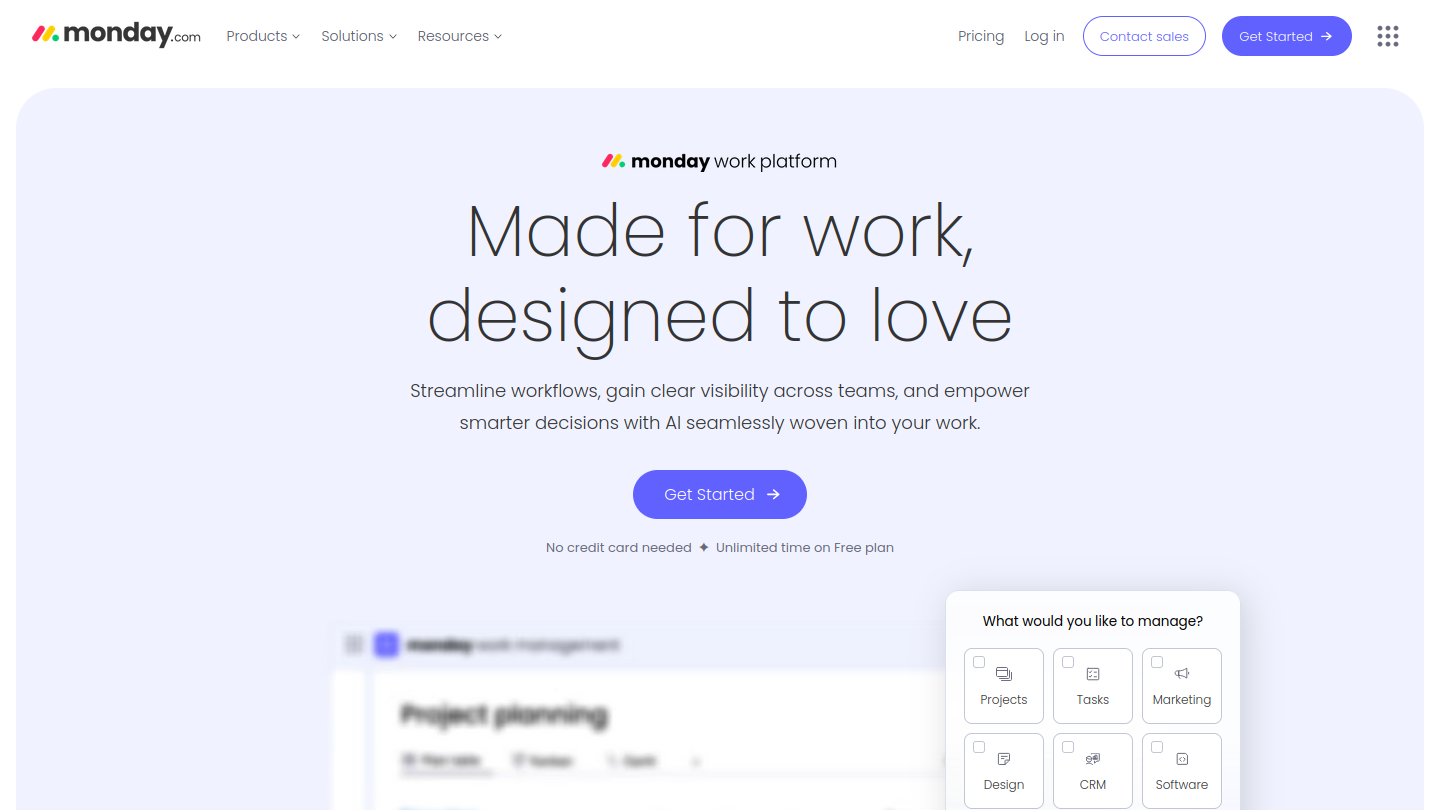
Originally a project management tool, Monday.com has evolved into a versatile work operating system with CRM capabilities. Its drag-and-drop interface and intuitive design make it easy for teams to adapt the platform to their needs.
Monday.com excels in managing sales pipelines, automating repetitive tasks, and enabling seamless cross-department collaboration. The platform tracks customer interactions, sets up automated workflows for lead nurturing, and supports real-time team collaboration.
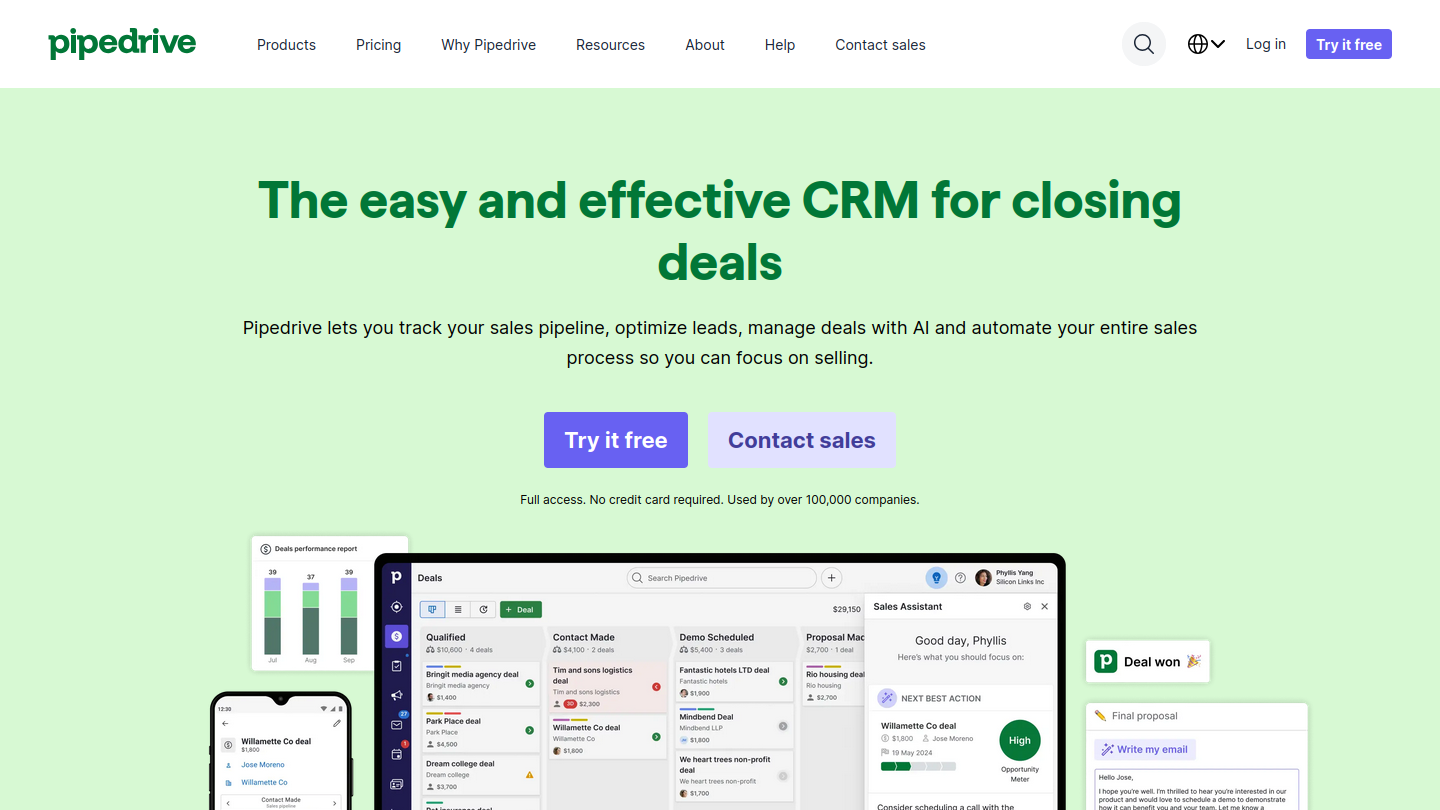
Pipedrive specializes in sales pipeline management with an intuitive interface for sales teams to visualize processes, track interactions, and close deals efficiently. Advanced features include AI-powered deal recommendations, automated reminders, and detailed analytics.
The platform's focus on simplicity and user experience makes it accessible even to non-technical users, making it ideal for small to mid-sized businesses.
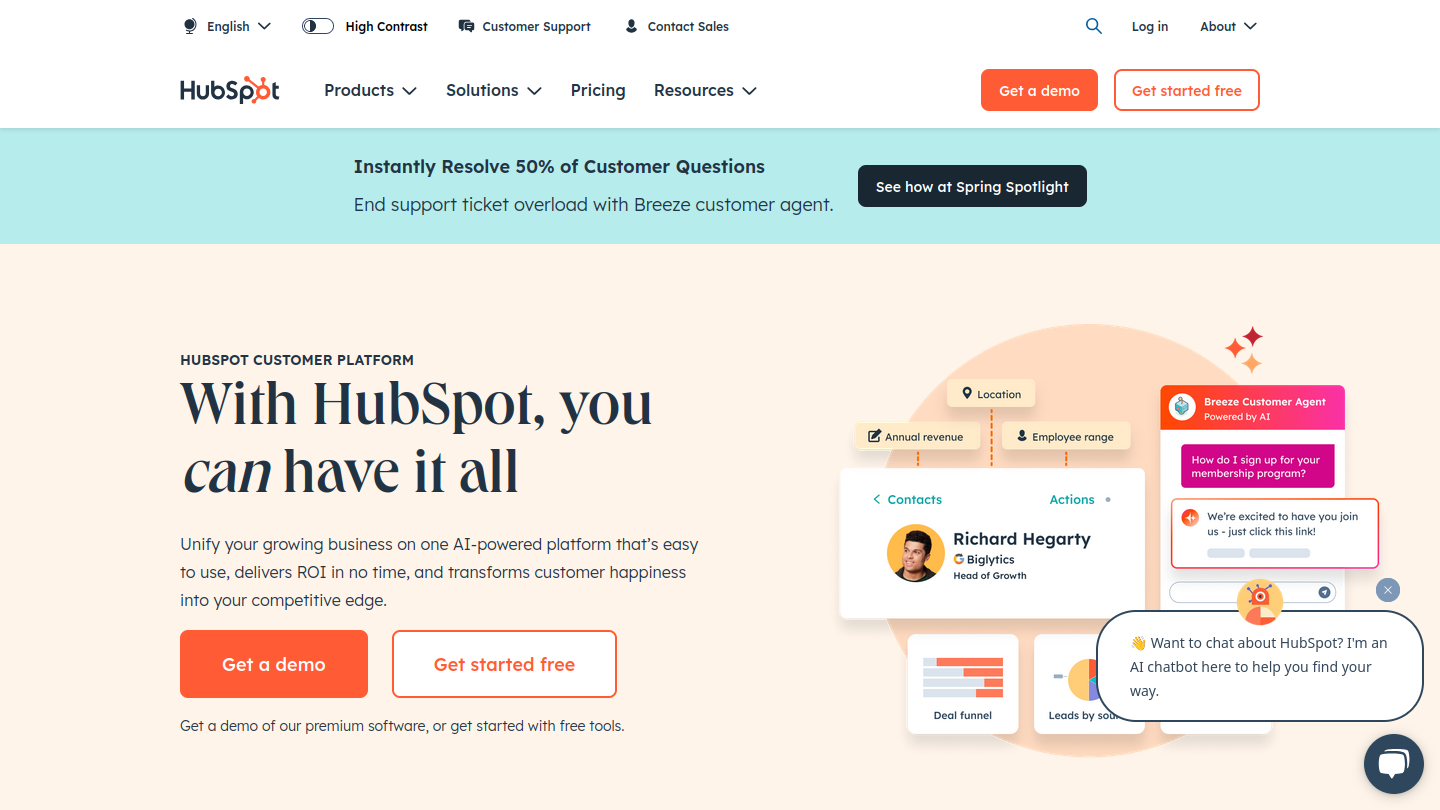
HubSpot CRM has built a reputation for user-friendliness, accessibility, and versatility. The free version allows businesses to start without major financial commitment. HubSpot integrates seamlessly with various marketing, sales, and service tools.
The platform offers automation features and AI tools for businesses looking to grow their marketing and sales operations. HubSpot makes tracking and engaging customers across multiple touchpoints straightforward.
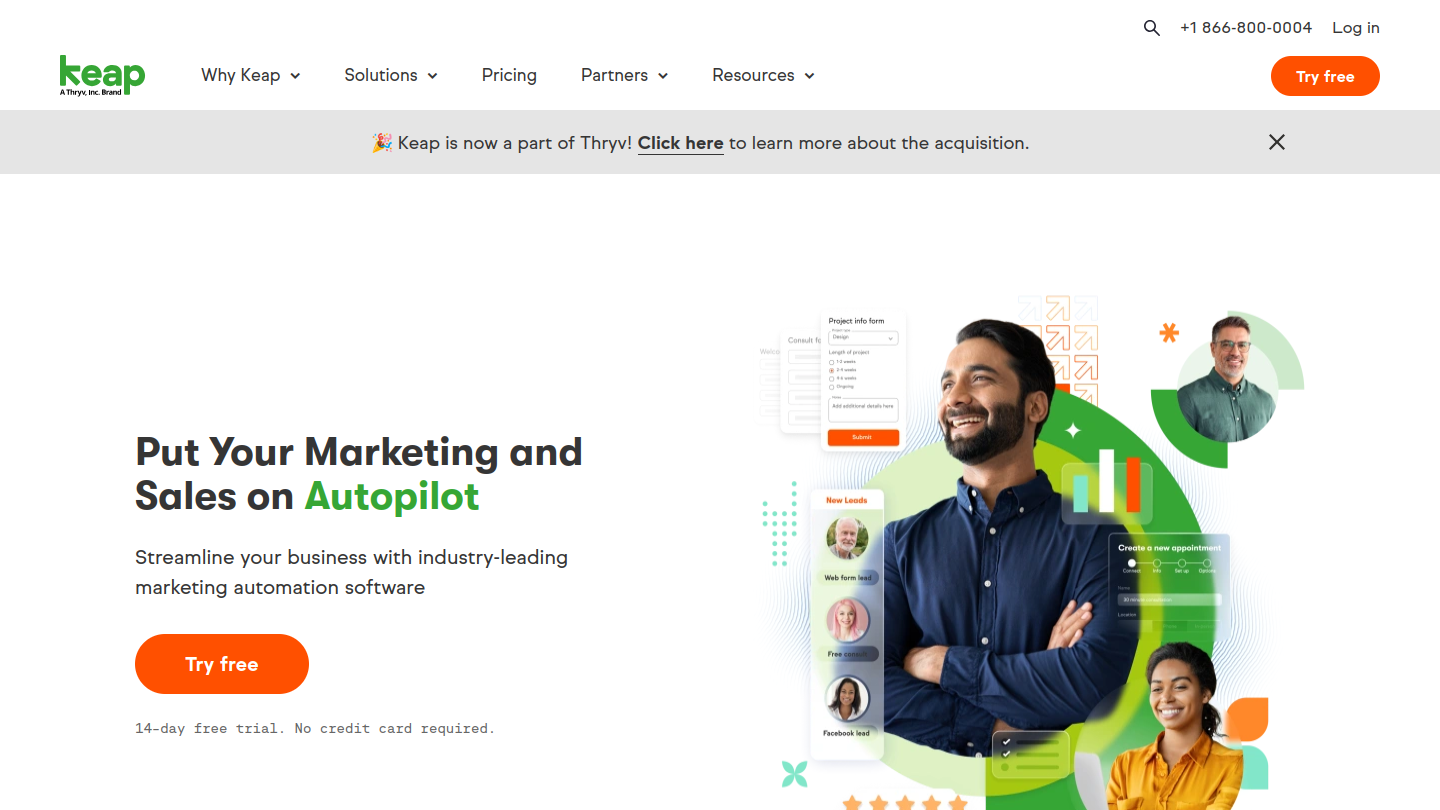
Keap combines CRM, marketing automation, and eCommerce tools in one platform. Features include lead management, sales pipeline tracking, and automated marketing campaigns.
Known for ease of use, Keap helps small businesses automate workflows and focus on scaling operations.
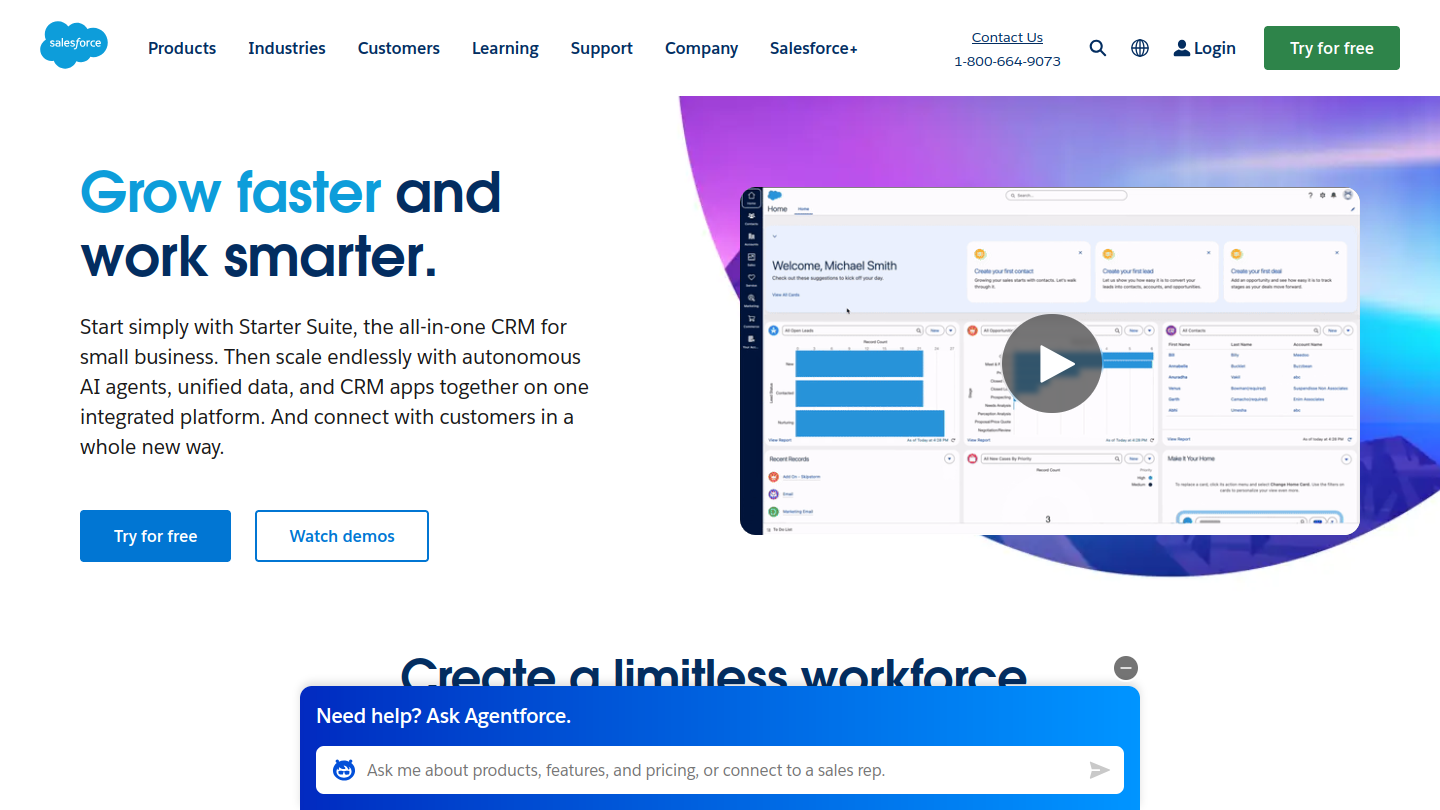
Salesforce remains one of the most powerful CRM platforms, offering extensive functionality, scalability, and integration capabilities. The platform provides a complete suite of features spanning sales, service, marketing, and analytics.
Customizable dashboards, automated workflows, and AI through Salesforce Einstein provide insights into customer behavior and enhance operational efficiency. Salesforce offers tailored solutions for almost every industry.
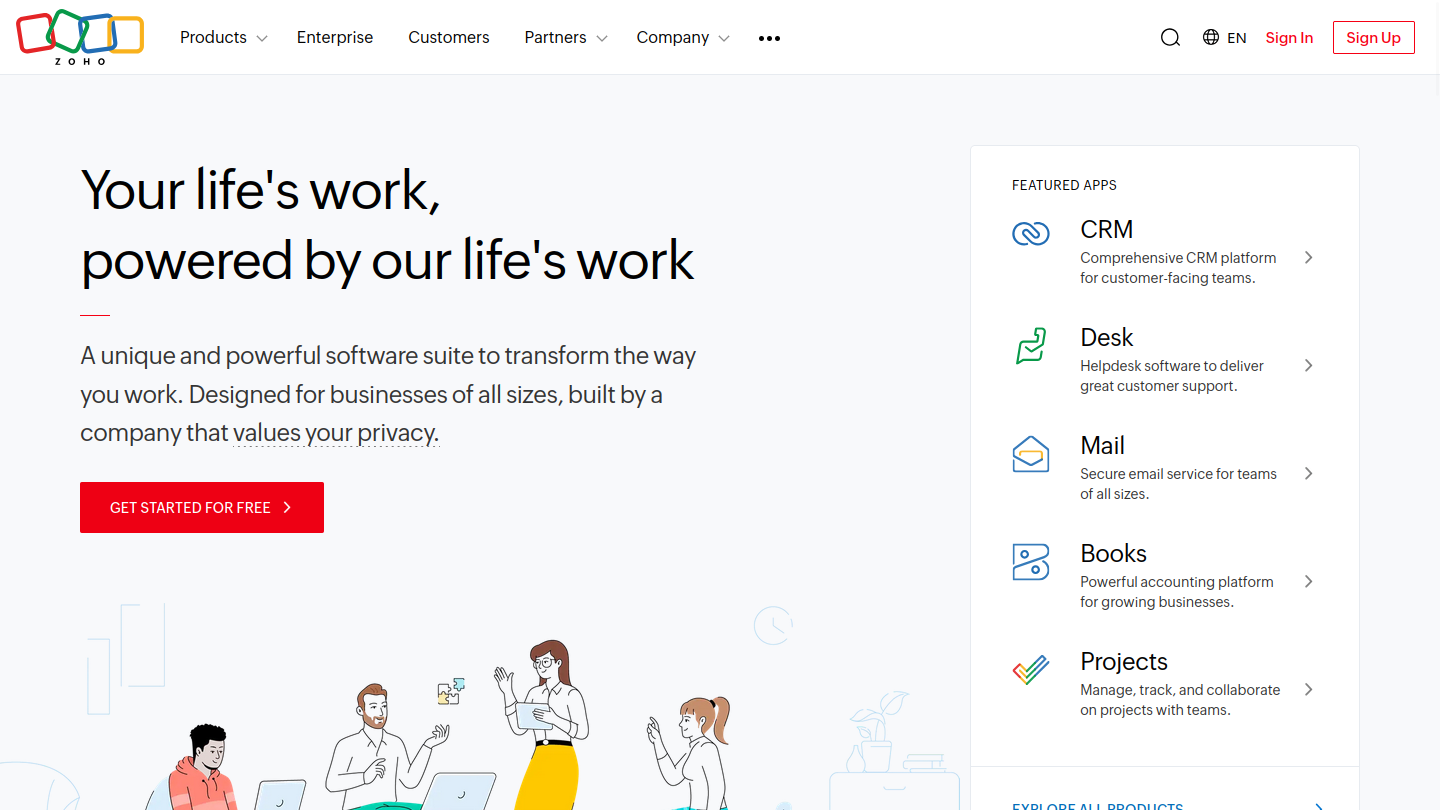
Zoho CRM delivers an affordable, customizable platform suitable for small and medium-sized businesses. Features include sales automation, marketing tools, analytics, and integrations with other Zoho products and third-party apps.
The platform's flexibility allows businesses to tailor it to specific needs without high costs. Scalability ensures growth with your business.
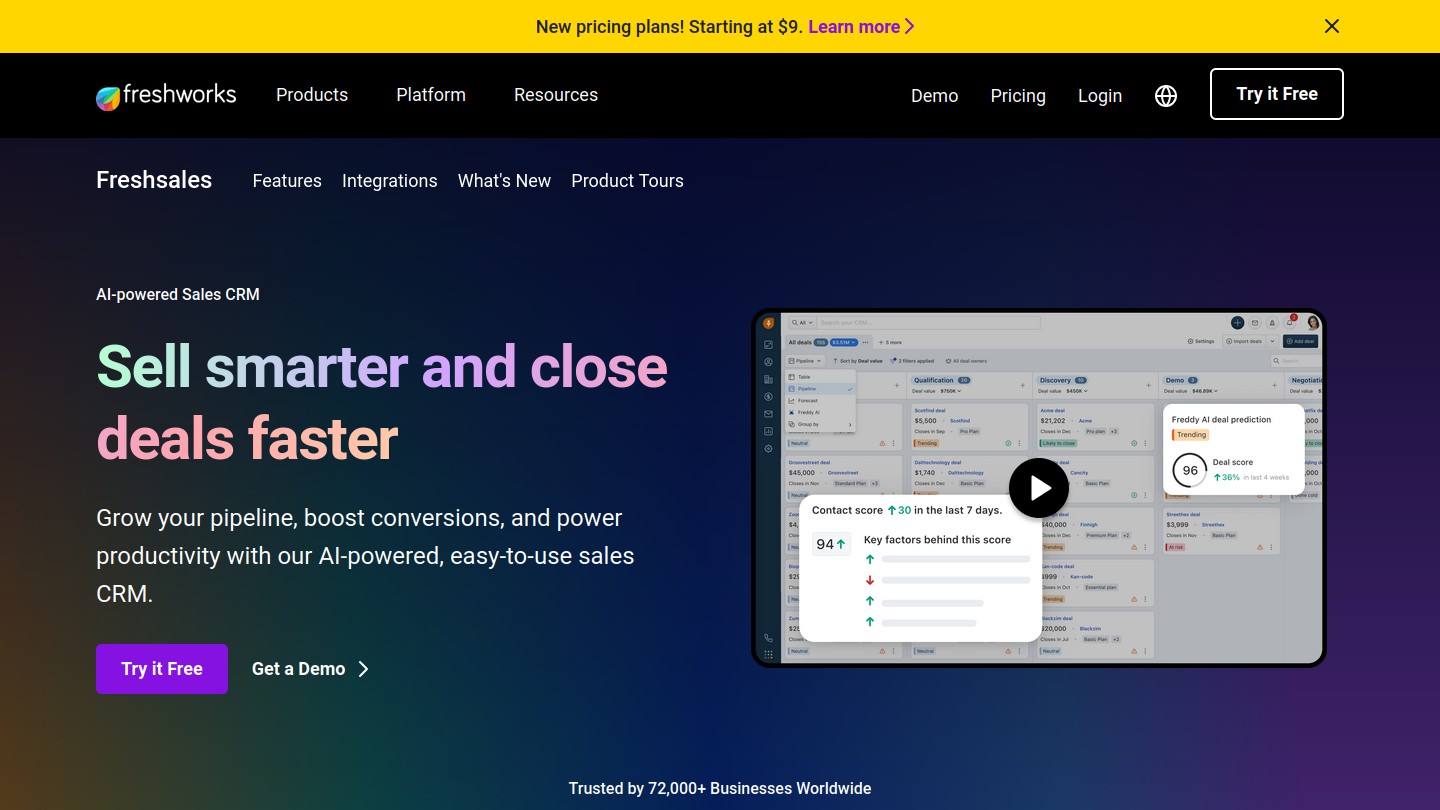
Freshsales offers comprehensive sales tools, including AI-driven lead scoring, email tracking, and pipeline management. The platform streamlines customer relationship management with workflow automation and integrations with other Freshworks products.
Customization options allow businesses to tailor the platform to specific sales needs, making it well-suited for eCommerce, technology, and SaaS industries.
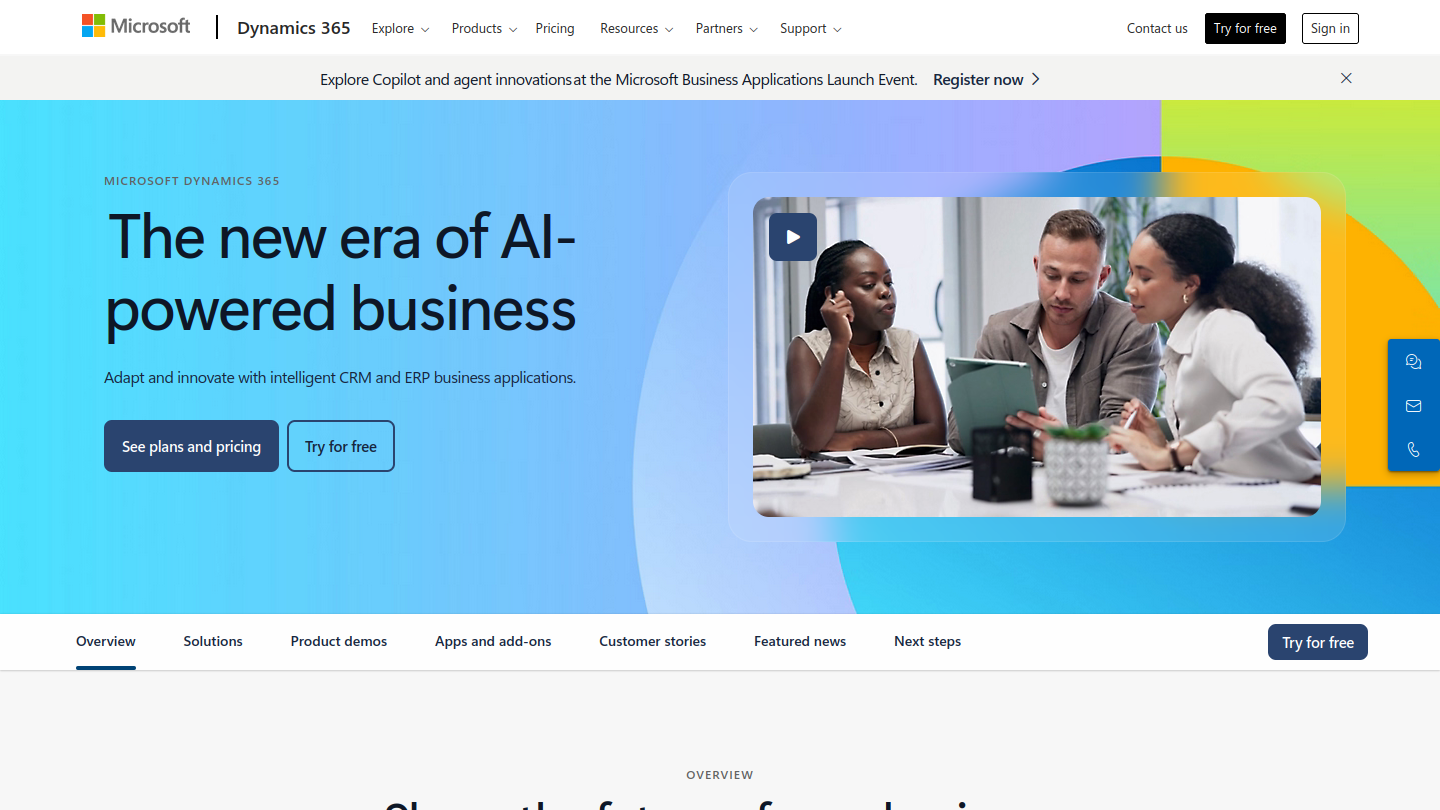
Microsoft Dynamics 365 combines CRM capabilities with enterprise resource planning (ERP) in an all-in-one business management suite. The platform integrates CRM with other business systems like finance, HR, and supply chain management.
This cloud-based solution offers flexibility, scalability, and AI-powered insights for data-driven decisions. Built-in tools for sales, customer service, and marketing automation make it powerful for large enterprises.

Copper integrates specifically with Google Workspace, providing seamless connection with Google's productivity tools. The platform unifies management of emails, contacts, calendars, and files within the CRM.
Copper automates routine tasks and offers in-depth analytics for sales pipeline and customer relationship insights.
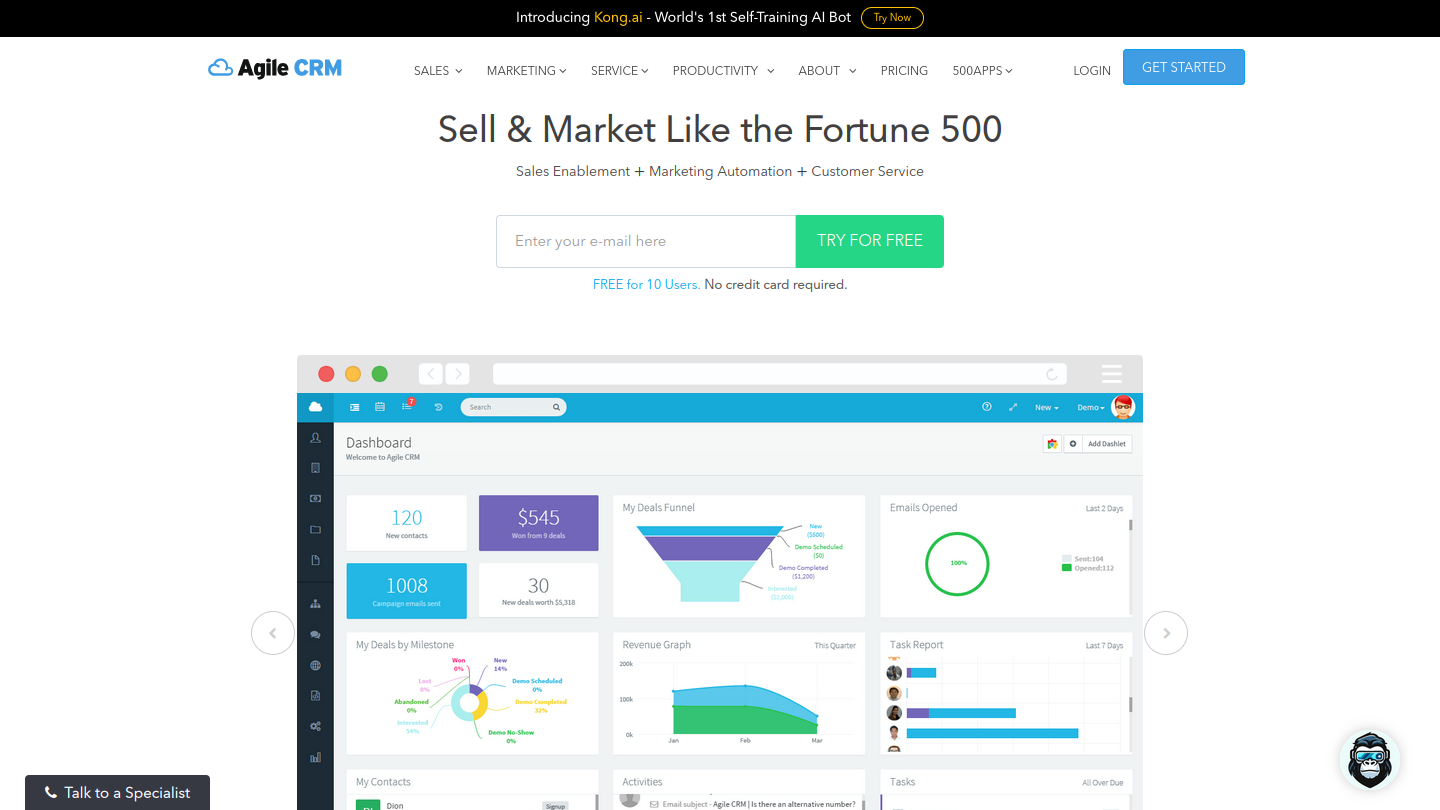
Agile CRM helps small businesses manage customer interactions, sales, and marketing efforts. Features include contact management, email marketing, lead scoring, and task automation within an intuitive interface.
Affordability makes Agile CRM ideal for businesses with limited budgets. Various integrations expand its capabilities.
When evaluating CRM software, focus on features that help achieve your business goals. Core functionalities include contact management, sales pipeline management, and customer support tools. Advanced features like marketing automation, email tracking, and AI-driven analytics provide additional value.
A comprehensive CRM centralizes customer interactions and information in an accessible database. Reporting and analytics tools deliver insights into sales performance, customer behavior, and marketing effectiveness. Automation features reduce manual work so teams can focus on high-value tasks.
As businesses grow, CRM needs evolve. Choose software that scales with your business and accommodates new users, locations, and product lines without losing effectiveness.
Scalability ensures your CRM handles a growing database, more customer interactions, and increased complexity. Flexibility allows customization to meet unique requirements through custom fields, workflows, or reporting templates.
Modern CRM software should integrate with other business tools. Whether email marketing platforms, social media tools, accounting software, or project management systems, integration maintains efficient workflows.
CRM integration with email marketing can automate campaigns based on customer behavior. Connecting with accounting software gives sales teams current payment information to improve client conversations.
Successful CRM implementation depends on team adoption and customization capabilities. Look for intuitive interfaces that allow quick adaptation without extensive training.
Every business operates differently, so CRM should adapt to specific workflows and processes. Customizable dashboards, forms, reports, and user permissions help teams work more effectively.
CRM costs vary significantly based on platform and features. Assess overall value: Does the software save time, reduce costs, or improve customer retention enough to justify the price?
Some platforms offer freemium models for startups, while others provide scalable plans for growing teams. Consider long-term costs for upgrades, support, and additional features when evaluating pricing.
With increasing data importance, security must be prioritized when selecting CRM software. Look for strong encryption, secure access controls, and compliance with regulations like GDPR or CCPA.
Choose CRM providers with SOC 2 compliance or data security best practices. Consider data backup capabilities and disaster recovery plans for system failures.
Selecting the right CRM software creates strong customer relationships while improving efficiency and productivity. With numerous options available, focus on your specific needs based on team size and required features. The top CRM platforms discussed offer tools to streamline processes, enhance customer service, and boost sales.
As businesses grow, CRM needs evolve, making scalability essential. Many CRM solutions provide customization options and features that adapt to changing requirements. Exploring and testing different options helps select the CRM that meets current needs and supports long-term growth.